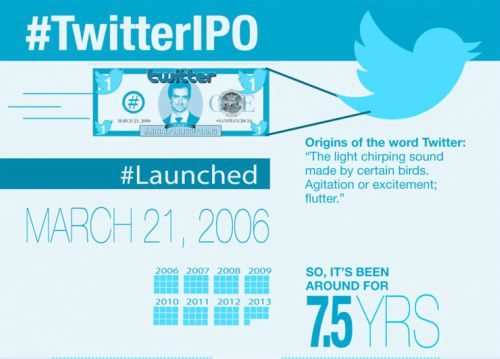NFTs and brands
NFTs were created as collectibles, and nothing says collectible more than fashion. That’s why both leading and emerging fashion brands are showing interest in NFTs and some NFT stock prices are on the rise—more on that below. Maverick companies like the NFT-based fashion brand Overpriced, which calls itself ‘the world’s first NFT-driven fashion brand’ have already proven that there is a market—the company created a physical hoodie with a scannable code that sold on the NFT platform BlockParty for $26,000. How NFTs and brands can be related together?
NFTs and brands
They’re not alone. Established fashion brands are also jumping on the NFT bandwagon to capitalize on the new market potential and protect their IP. That’s because luxury fashion is constantly being counterfeited, and NFTs provide a clear ledger of provenance for an item. Leading the way in the traditional fashion world is the Paris-based luxury goods conglomerate LVMH Moët Hennessy Louis Vuitton, who initiated the Aura platform in 2019, a blockchain system that allows consumers to track the origins and lifecycle of their purchases and is open to all luxury brands worldwide. Bulgari, Cartier, Hublot, Louis Vuitton, and Prada are already connected to the platform, which gives consumers direct access to a product’s history, proof of ownership, warranty, and maintenance record.
IP protection is only one of many benefits NFTs offer. Let’s look at what NFTs have to offer the world of fashion.
NFTs and brands
Exclusivity and luxury
Scarcity drives value, and NFTs, which are one-of-a-kind or very limited in number, are a great way to create scarcity, which can appeal to a high-end customer. Luxury fashion brands can also use NFTs to tell their story and reflect their values, creating priceless, irreplicable experiences for customers looking for something special. It’s a new way to reach high-net-worth customers, who aren’t looking for utility, but for a story behind the item they purchase. “Right now, fashion being sold via NFT is fashion as art, and not necessarily fashion as a utility,” says Cathy Hackl, CEO of Futures Intelligence Group.
RTFKT – a company using the latest in game engines, NFT, blockchain authentication and augmented reality to create one-of-a-kind sneakers and digital artifacts – demonstrated the potential of NFTs in exclusive fashion when they sold $3.1 million worth of NFT sneakers in just seven minutes in February 2021. That performance led to an $8 million seed funding round led by Venture Capital firm Andreessen Horowitz.
Sustainability and transparency
Consumers today, particularly millennials and Gen Z, are very concerned with sustainability, the environment, and fair labor practices. However, there is no real transparency in the sourcing of fashion products. Even products that are labeled as sustainable, or sustainably sourced, often refer to only one part of the supply chain. The customer in the store has no way of monitoring the entire product life cycle.
NFTs can change that by tokenizing physical assets, in this case, clothing, allowing customers to see where products are sourced throughout their cycle. With blockchain, brands can sell a final product or even third-party goods with a transparent view of the entire manufacturing process and supply chain, something that consumers are likely to demand more in the future.
Gaming wearables
The viability of an in-game purchase model has already been proven with popular games like Fortnite that have been selling digital skins and enhancements that allow players to personalize their avatars and their gaming experience. NFTs take the potential to the next level, enabling players to transfer their digital assets between gaming platforms. Avatar fashion and wearables are one of the most popular types of digital assets, opening up significant potential for fashion innovation.
Decentraland (a blockchain-based virtual reality world) has already created an NFT gaming fashion wearables marketplace, where anyone can design and sell NFTs. The marketplace includes a wide variety of fashion items to give avatars a unique style including hats, boots, clothes, and glasses. Depending on the amount minted for each item they are categorized as uncommon, swanky, epic, legendary, or mythic, and can either be used in the Decentraland platform or sold on the open market.
NFTs and brands ; Digital wardrobe and phygital fashion
As our digital and physical worlds become more tightly intertwined, many shopping experiences and products are becoming “phygital”, leveraging the best of both worlds. NFT fashion is part of that trend, as many fashion NFTs include both a physical product and the blockchain token that proves ownership. For example, Overpriced’s™ hoodies are printed with a patent-pending scannable V-code that enables seamless transitions between the physical and digital worlds. Users can see the history and metadata of the item using the code, “wear” the hoodie in virtual spaces online, and display and authenticate the NFT through a pop-up image link on any smartphone. This model is demonstrating how the value of fashion may transition to the digital token rather than the physical garment.
Overpriced isn’t alone. The digital luxury fast fashion brand Republiqe™ lets users upload a photo onto their website, and then digital artists create what they call a “fully sustainable, ethically-produced digital garment” that users can “wear” online, in their social media profiles, for example. RTFKT’s NFT virtual sneakers can also be “worn” in some virtual worlds or on social media via a Snapchat filter, and many smaller fashion brands are now selling NFT fashion on open marketplaces like KnownOrigen and OpenSea often offering physical “twins” of the digital item that are sent to the NFT owner after purchase.
What is NFT stock and how to invest in NFT stock
Fashion NFTs are not only a way to get a unique look online and in person. This burgeoning field also offers enormous opportunities for investors, including in NFT stocks.
What are NFT stocks? NFT stocks are stocks in companies that are invested or active in the NFT arena, either creating NFTs, or building the infrastructure to create, buy, and sell them. This is a new domain, so it can be hard to predict success for any individual initiative, which makes investing risky. It can be hard to decide what NFT stocks to buy.
Investors excited about the potential of NFTs in fashion or in general can also invest in an NFT ETF (Exchange Traded Fund) such as Defiance’s NFTZ. Instead of gambling on the best NFT stocks, NFTZ enables you to invest in several different companies in the NFT ecosystem. The net asset value of an investment in NFTZ is linked to the value of its composite stocks, in this case, stocks on an NFT stocks list, an index of publicly listed companies with relevant thematic exposure to the NFT, blockchain, and cryptocurrency ecosystems. It mitigates risk while still offering investors a way to connect to this exciting new frontier.
Risk Disclosure
Investing involves risk. Principal loss is possible. As an ETF, the fund may trade at a premium or discount to NAV. Shares of any ETF are bought and sold at market price (not NAV) and are not individually redeemed from the Fund. The Fund is not actively managed and would not sell a security due to current or projected under performance unless that security is removed from the Index or is required upon a reconstitution of the Index.
The Index, and consequently the Fund, is expected to concentrate its investments (i.e., hold more than 25% of its total assets) in the securities of Crypto and Blockchain Companies. As a result, the value of the Fund’s shares may rise and fall more than the value of shares of a fund that invests in securities of companies in a broader range of industries.
The mechanics of using blockchain technology to transact in digital or other types of assets, such as securities or derivatives, is relatively new and untested. There is no assurance that widespread adoption will occur. A lack of expansion in the usage of blockchain technology could adversely affect Crypto and Blockchain Companies. Transacting on a blockchain depends in part specifically on the use of cryptographic keys that are required to access a user’s account (or “wallet”). The theft, loss, or destruction of these keys could adversely affect a user’s ownership claims over an asset or a company’s business or operations if it was dependent on the blockchain.
The Fund is considered to be non-diversified, which means that it may invest more of its assets in the securities of a single issuer or a smaller number of issuers than if it were a diversified fund. As a result, the Fund may be more exposed to the risks associated with and developments affecting an individual issuer or a smaller number of issuers than a fund that invests more widely. This may increase the Fund’s volatility and cause the performance of a relatively smaller number of issuers to have a greater impact on the Fund’s performance.
Investments in non-U.S. securities involve certain risks that may not be present with investments in U.S. securities. For example, investments in non-U.S. securities may be subject to risk of loss due to foreign currency fluctuations or to political or economic instability. There may be less information publicly available about a non-U.S. issuer than a U.S. issuer.
The BITA Next Gen NFT Index is a rules-based index that consists of the common stock (or depositary receipts) of companies that are building a platform or developing technology to use, or have at least one use or test case for using, NFT (Non-Fungible Token), cryptocurrency trading platforms, cryptocurrency mining, cryptocurrency banking or related services, or blockchain-related technology, as well as companies that have announced publicly that they intend to enter such space or have begun working on such products (collectively, “Crypto and Blockchain Companies”). The Index consists of companies listed on North American and European exchanges and aims to capture the potential upside generated by earnings related to the adoption of crypto- and blockchain-related technologies, including NFTs and cryptocurrency.
NFTZ is new with a limited operating history.
Go to defianceetfs.com/NFTZ to read more about NFT including current performance and holdings information. Fund holdings are subject to change and should not be considered recommendations to buy or sell any securities.
The Defiance ETFs are distributed by Foreside Fund Services, LLC.
The Funds’ investment objectives, risks, charges, and expenses must be considered carefully before investing. The prospectus contain this and other important information about the investment company. Please read carefully before investing. A hard copy of the prospectuses can be requested by calling 833.333.9383 or at defianceetfs.com.

Founder Dinis Guarda
IntelligentHQ Your New Business Network.
IntelligentHQ is a Business network and an expert source for finance, capital markets and intelligence for thousands of global business professionals, startups, and companies.
We exist at the point of intersection between technology, social media, finance and innovation.
IntelligentHQ leverages innovation and scale of social digital technology, analytics, news, and distribution to create an unparalleled, full digital medium and social business networks spectrum.
IntelligentHQ is working hard, to become a trusted, and indispensable source of business news and analytics, within financial services and its associated supply chains and ecosystems
































